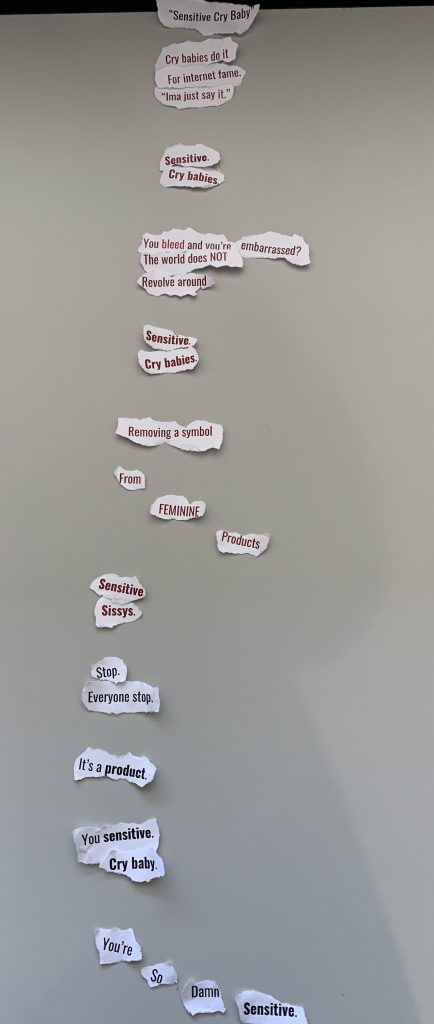For my found poem assignment, I chose to use a hateful post on Facebook that is against transgender people. It poorly discusses the event of a tampon company offering non-gendered packaging. The author of the post uses “sensitive cry baby” in nearly every sentence and I found it comical because they are implying that transgender people are being sensitive cry babies over something as simple as a product, and yet the author of the post is actually the one making a huge deal out of it. I decided to use their own words against them.
The beginning of the poem is in red to signal the author’s nasty dialogue and in the end I switch to black where I cut them off and throw their own words in their face, proving that they are, in fact, the sensitive cry baby flipping out over a simple product. I felt extremely angry creating this because I don’t understand why people have to be so hateful (hence ripping the paper instead of cutting it). If you don’t agree with something, fine, but don’t actively seek out a way to attack innocent people. Also, “feminine” was capitalized in my poem to show that tampons are advertised as “female”. It has been this way throughout history, but history is changing and if a tampon company wants to show support for the lgbtq+ community, then that is something to be celebrated. No one is being forced to buy them. By all means, go spend your money on the frilly pink box that advertises periods as an incredible and happy experience! This activity made me see how powerful words can be. They do so much more than teach. They are able to create empathy and feelings of distress or fury. It’s fascinating to me and I thoroughly enjoyed creating this poem. It was a great outlet for my anger too. I felt a lot better after spending time ripping apart the words.

